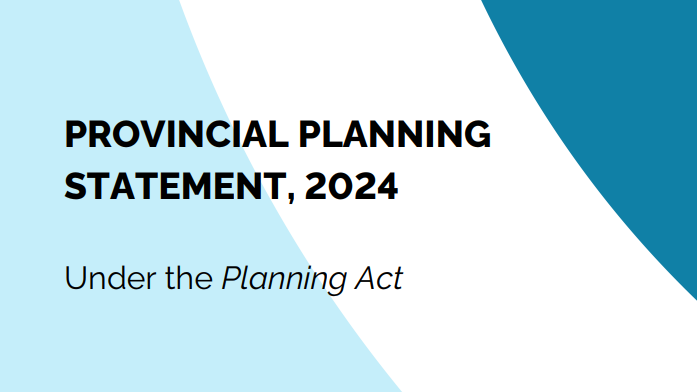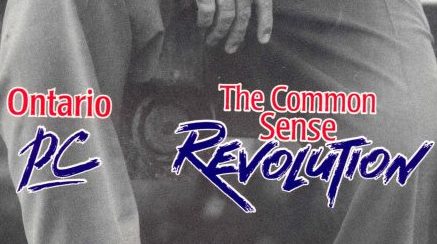Mandate letters are written by senior government officials on behalf of the Premier/Prime Minster to Ministers of Ontario’s ministries outlining the Premier’s/Prime Minister’s plan of action and key policy priorities for each Minister, as well as the Premier’s advice, instructions and guidance on their responsibilities during their term in office.
The letters combine the priorities and policies of the: political party, election platform, and the Premier/Prime Minister.
On September 25, 2014 the Wynne government became the first to make ministers’ mandate letters available to the public in Ontario. The Trudeau federal government followed suit the next year, being the first to release ministerial mandate letters. This increased government transparency.
On February 2, 2024, the Supreme Court of Canada ruled mandate letters issued to cabinet ministers do not have to be released to the public. The mandate letters had been leaked to Global News 5 months earlier on September 12, 2023.
The Supreme Court’s robust defence of Cabinet confidentiality may lead governments across the country to increasingly rely on the section 12 exemption (and its equivalents in other provincial freedom of information legislation).
Supreme Court finds Premier’s Cabinet mandate letters exempt under freedom of information laws
2018 Ontario Ministers’ mandate letters
Minister of Health and Long-Term care
- 15,000 long-term care beds in five years and 30,000 long-term care beds in 10 years
- $3.8 billion in mental health, addictions and supportive housing
- Free dental services for seniors with lower-incomes
- End hallway medicine in our hospitals
- Repurpose OHIP+ into a government as second payer system
- End government run complex care units for home care
- End personal support worker agency
More: Doug Ford’s 2018 mandate letters
Recent federal and provincial governments released mandate letters
- November 12, 2015 the Trudeau government publicly released ministerial mandate letters for the first time.
- September 25, 2014 Premier Wynne became the first Premier of Ontario to make ministers’ mandate letters available to the public.
Timeline
February 2, 2024 – Supreme Court of Canada rules unanimously mandate letters issued to cabinet ministers in 2018 are exempt from public disclosure under FIPPA
In approaching assertions of Cabinet confidentiality, administrative decision makers and reviewing courts must be attentive to the vital importance of public access to government-held information but also to Cabinet secrecy’s core purpose of enabling effective government, and its underlying rationale of efficiency, candour, and solidarity
Justice Karakatsanis
In Canada’s constitutional democracy, the confidentiality of Cabinet deliberations is a precondition to responsible government because it enables collective ministerial responsibility. Responsible government is a fundamental principle of Canada’s system of government and the most important non-federal characteristic of the Canadian Constitution.
Cabinet secrecy derives from the collective dimension of ministerial responsibility, which requires that ministers be able to speak freely when deliberating without fear that what they say might be subject to public scrutiny. This is necessary so ministers do not censor themselves in policy debate, and so ministers can stand together in public, and be held responsible as a whole, once a policy decision has been made and announced. These purposes are referred to as the candour and solidarity rationales for Cabinet confidentiality.
There is also a third rationale for the convention of Cabinet confidentiality: it promotes the efficiency of the collective decision-making process. Thus, Cabinet secrecy promotes candour, solidarity, and efficiency, all in aid of effective government.
Critical reception
Respect for taxpayers must mean openness, transparency and accountability, so the public has confidence the government is carefully managing their money and working diligently on their priorities.
Since coming to power, the Ford Conservatives have refused to be straight with the public, keeping mandate letters hidden from view. This is alarming since this government has consistently operated behind closed doors to put well-connected insiders ahead of Ontario families.
Bonnie Crombie, Leader of the Ontario Liberal Party
September 12, 2023 – Ford Government mandate letters leaked to Global News
Five core commitments Doug Ford expects minister to know by heart:
- Put more money in your pocket
- Scrapping the carbon tax
- Reducing gas prices by 10 cents per litre
- Giving real tax relief to lower and middle class families
- Clean up the hydro mess
- Firing the CEO of Hydro One and lowering Ontario hydro bills by 12%
- Create good jobs
- Sending the message that ‘Ontario is open for business’
- Bringing quality jobs back to Ontario by lowering taxes
- Stabilizing hydro bills
- Cutting job-killing red tape
- Restore accountability and trust
- Ordering a line-by-line audit of government spending
- Bringing an end to the culture of waste and mismanagement in government
- Cut hospital wait times and end hallway health care
- Creating 15,000 new long-term care beds over the next five years
- Adding $3.8 billion in support for mental health, addictions and supportive housing
I expect that each ministry and its respective minister maintain our commitment to bringing relief to families and making Ontario a place that is open for business again. As minister, I trust that your ministry will adhere to the program-spending guidelines that have been established. It is my duty to inform you that the President of the Treasury Board – in collaboration with the Minister of Finance – will be working alongside you and your new fellow ministers to ensure that our new government will achieve the fiscal positions that we have committed to. Ultimately, we will return the province to budget balance as quickly as possible.
Premier Doug Ford
September 11, 2023 – Ontario Crown lawyers dedicated 1,672 taxpayer-funded hours to the province’s case to keep Premier Doug Ford’s now-leaked mandate letters secret between July 2018 and July 2021
August 27, 2020 – Divisional court judicial review finds the IPC’s decision was reasonable
July 15, 2019 – Ford government applies to Ontario Divisional Court for judicial review of the IPC’s decision
July 15, 2019 – IPC rules that the mandate letters were not exempt under FIPPA and should be released
Section 12(1) of the Freedom of Information and Protection of Privacy Act (Cabinet Records) only exempts Cabinet policy deliberations but not the outcomes of these discussions. For the IPC, the mandate letters fell into the latter category. Soon after the decision, the Attorney General of Ontario (the “AGO”) asked the Divisional Court to review the IPC decision, which later upheld the IPC’s ruling.
IPC decision
A head shall refuse to disclose a record where the disclosure would reveal the substance of deliberations of the Executive Council or its committees, including,
(a) an agenda, minute or other record of the deliberations or decisions of the Executive Council or its committees;
(b) a record containing policy options or recommendations submitted, or prepared for submission, to the Executive Council or its committees;
(c) a record that does not contain policy options or recommendations referred to in clause (b) and that does contain background explanations or analyses of problems submitted, or prepared for submission, to the Executive Council or its committees for their consideration in making decisions, before those decisions are made and implemented;
(d) a record used for or reflecting consultation among ministers of the Crown on matters relating to the making of government decisions or the formulation of government policy;
(e) a record prepared to brief a minister of the Crown in relation to matters that are before or are proposed to be brought before the Executive Council or its committees, or are the subject of consultations among ministers relating to government decisions or the formulation of government policy; and
(f) draft legislation or regulations. R.S.O. 1990, c. F.31, s. 12 (1).
Section 12(1) of the Freedom of Information and Protection of Privacy Act


Comments
We want to hear from you! Share your opinions below and remember to keep it respectful. Please read our Community Guidelines before participating.